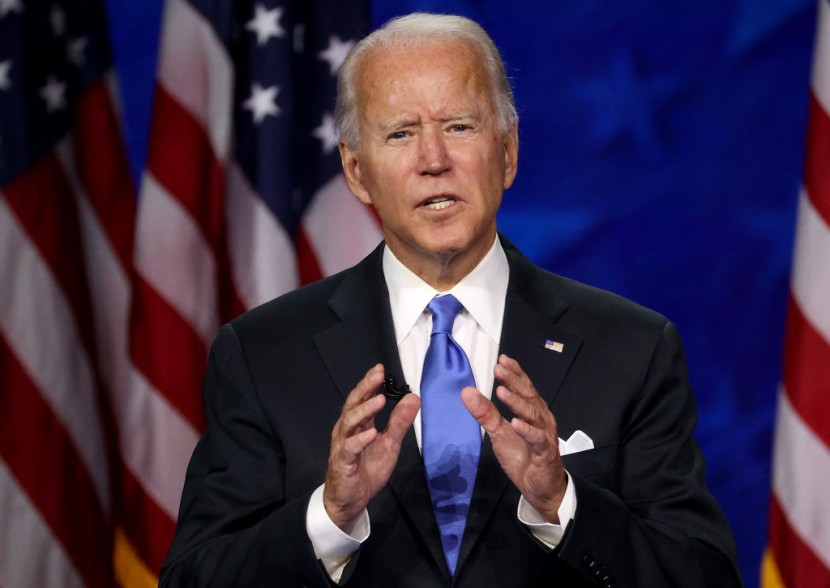
On Thursday, the Supreme Court denied a motion to halt the Biden administration's student loan debt relief initiative. A Wisconsin taxpayers' group had on Wednesday filed an emergency application to stop the program, but Justice Amy Coney Barrett rejected it.
Such applications from cases in the 7th Circuit US Court of Appeals, which covers Wisconsin, are handled by Barrett. The Supreme Court's docket does not state that she referred the application to the entire court before denying it, even though she noted her denial there.
Biden's Student Loan Forgiveness Plan
Millions of borrowers will have their student debt of up to $20,000 forgiven thanks to the loan relief program, which is scheduled to start this weekend. Last weekend, more than 8 million people submitted applications for the program. A beta test was started by the Department of Education, as per CNBC.
The Brown County Taxpayers Association's appeal is one of many pending in federal courts to stop the initiative, which detractors claim goes beyond the Department of Education's authority. In August, President Joe Biden made the program announcement.
For those earning up to $125,000 annually or who are a part of a household with total annual earnings of no more than $250,000, Biden's proposal would forgive up to $20,000 in student loan debt for Pell Grant winners and $10,000 for other borrowers.
The HEROES Act, which was passed following the September 11 attacks and led to an American-led military fight against terrorism, was what allowed Biden to implement the debt relief program. According to the law, student loan debt can be forgiven with military operations or other serious national emergencies.
The government said that the statute permits loan forgiveness for Americans who are struggling financially as a result of the COVID-19 outbreak, according to USA Today.
The White House reports that 12 million people have applied so far, and 8 million more have received notifications that their applications would be automatically canceled because the Education Department already has their information on file. Before the start of the federal student loan repayment program in January, the administration advised people to submit the form by November 15 to have it processed.
Insistence on the legality of their debt elimination proposal has come from the Biden administration. In an August 25-page memo, the Justice Department defended the policy by a 2003 legislation that gave the secretary of education the power to lessen the hardship that federal student loan holders may experience due to national emergencies.
As Americans dealt with the financial effects of the national health catastrophe, the Trump administration utilized the same statute, often known as the Heroes Act, to halt payments on federal student loans at the start of the coronavirus outbreak. Brian Netter, an attorney for the Justice Department, recently reminded the court of this and pointed out that no attempts had been made to contest the validity of the payment moratorium, The Washington Post via MSN reported.
Student Loan Forgiveness Application
The big questions doctrine, a legal theory, was questioned by Judge Autrey at the hearing regarding whether the amount of loan cancellation, at a cost of about $300 billion, required explicit authorization from Congress due to its economic and political significance.
This year, the Environmental Protection Agency's ability to tackle climate change was restricted by the Supreme Court using that concept. Higher education professionals had anticipated that the idea would be applied to discredit Biden's debt reduction plan.
The debt relief program, according to Netter, was created to address the scope of the national disaster and prevent a predicted wave of delinquencies when the suspension of federal student loan payments ends. The hiatus was prolonged until December 31.
Many commercial FFEL debtors consolidated their debt into Direct Loans after Biden presented his cancellation proposal in August to be eligible for relief. According to the states, the strategy encouraged borrowers to consolidate, depriving their associated corporations of interest income.
However, the Biden administration reduced eligibility for the debt relief program hours before the case was filed, stating that commercial FFEL debtors may no longer consolidate to qualify for the one-time relief. Attorneys for the Justice Department stated that the ruling refuted the allegations of the states.
The judge concurred. In his decision on Thursday, he stated that the arguments of Arkansas and Nebraska are defeated by the absence of the continued incentive to combine.
He also questioned whether Missouri had the jurisdiction to file a lawsuit on behalf of the quasi-state organization that owns and manages FFEL debt, the Missouri Higher Education Loan Authority. Even though the governor appoints five of the company's board members, Autrey contends that the company's earnings and obligations are unrelated to the government.
A case brought by the right-leaning Job Creators Network Foundation on behalf of a commercial FFEL borrower who is not qualified for relief and a borrower who is eligible but not eligible for the entire $20,000 in debt reduction is one of the other current cases, as per Washington Examiner.
@YouTube








